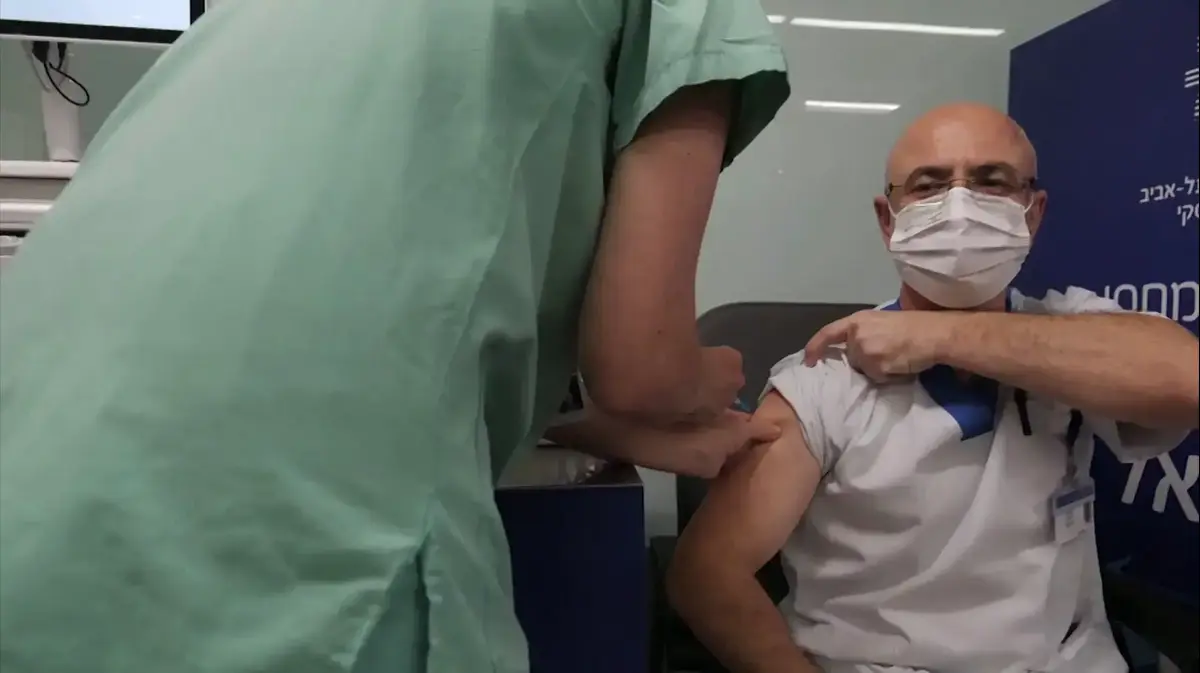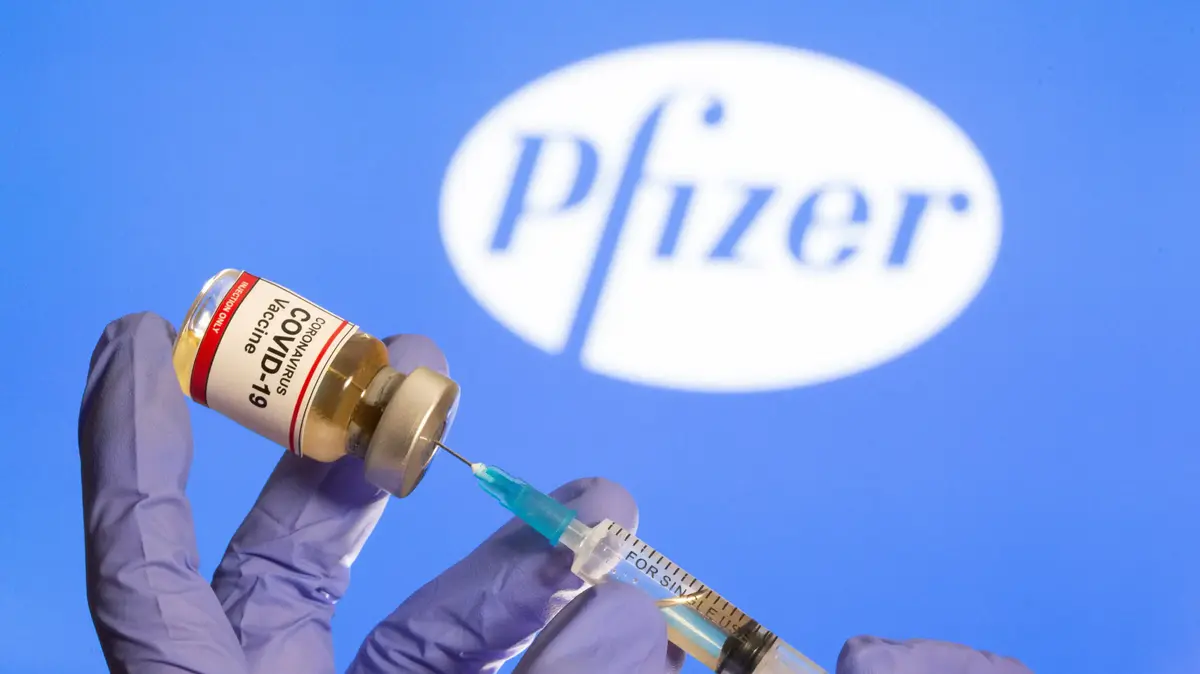Enlarge image
A vaccine warehouse in the state of Saxony-Anhalt
Photo: Ronny Hartmann / dpa-Zentralbild
It's like late 2020, but reversed: Now, as then, Germany needs to expand its vaccine infrastructure under great pressure, but this time it's not vaccine centers that are being built, it's warehouses for excess doses.
Germany has too much vaccine and it doesn't know where to put it.
The situation seemed unthinkable even just a few weeks ago.
For many people, getting a vaccination appointment seemed as probable as winning the lottery.
Now the vaccination centers are posting huge numbers of free appointments and the refrigerators at doctors' offices are overflowing with unused vials.
That isn't just the case for the less popular vaccines from AstraZeneca and Johnson & Johnson, but also the mRNA jabs from BioNTech and Moderna.
Some German states have supposedly already asked the federal government to stop sending them vaccines, because their warehouses are full.
Many AstraZeneca vials are in danger of exceeding their expiration date.
Germany's cabinet has therefore decided to give away millions of doses to other countries.
On Monday, German Health Minister Jens Spahn of the center-right Christian Democrats (CDU) sent a five-page document to the leaders of the health authorities of German states.
"Since the availability of vaccine now clearly is higher than the demand, through August, the available vaccines will no longer fully be delivered to the states, doctors' offices and company physicians," it says. In other words, the federal government, which is responsible for procuring the vaccine, can no longer get rid of its doses.
According to the Robert Koch Institute (RKI), Germany's centers for disease control, 106 million doses had been delivered by this past Sunday, but only 90 million have been used by Tuesday.
As the vaccination rate decreases, the deliveries are getting bigger.
In the third quarter, Spahn is expecting over 100 million further doses.
The Federal Health Ministry is therefore rethinking things.
From mid-August the vaccines will no longer be distributed to the states based on a population-based formula, but rather delivered upon request.
Pfizer / BioNTech To Be Stored
In the meantime, Spahn needs to organize larger storage facilities for the sensitive mRNA vaccines, because the BioNTech and Moderna vaccines are meant to still be kept for potential use in Germany.
"There are currently no plans to give away mRNA vaccines," Spahn's ministry says.
Booster shots are set to roll out in the fall, and the very old and people with special health needs will receive their third shot.
There could also be greater demand for young people and children.
BioNTech is expected to be approved for children under 12 this autumn.
The problem: The mRNA vaccine must be refrigerated at minus 70 degrees Celsius (minus 94 degrees Fahrenheit) in the long-term, and special equipment is necessary.
The states believe they are not capable of organizing this themselves, so the vaccines are now only being stored in a central warehouse run by the federal authorities.
The ministry says that it has secured ultra-cold refrigeration "from various companies" to do this. The government is not revealing how many doses need to be stored centrally. In August, it says, it will be a "small surplus."
The only thing certain is that the German government is expecting over 70 million doses of mRNA vaccines alone during the third quarter.
Donating Doses More Complicated than Thought
The federal government is being more generous with the vaccines from AstraZenaca and Johnson & Johnson.
In early July, it decided to donate at least 30 million doses of these vaccines to other countries by the end of the year.
Developing countries, in particular, are meant to benefit.
The federal government wants to donate at least 80 percent of the doses to COVAX, the international vaccine initiative.
A smaller portion of up to 20 percent are to be donated through bilateral agreements - "in particular, to the western Balkan States, the Eastern Partnership" - which include Ukraine, Moldova, Belarus, Armenia and Azerbaijan - "and Namibia."
Details and concrete amounts are currently being negotiated.
The only thing that is certain is that, from August, all AstraZeneca deliveries will be given to COVAX and to other countries.
Time is of the essence, because, according to a survey carried out by DER SPIEGEL in German states, thousands of AstraZeneca doses could be thrown in the trash as soon as the next few days. According to the Health Ministry in the southern state of Baden-Württemberg, 4,000 doses at vaccination centers will be "affected by expiry in the short term" at the end of July. In Bavaria, "a four-digit amount" are at risk and In the northwestern state of Schleswig-Holstein, up to 2,480 AstraZeneca doses will be discarded because they expire on July 31. In the southwestern state of Saarland, 6,000 doses would be affected on that date.
In the central state of Hesse, about 200,000 doses remain in stock for vaccination centers.
They will expire in October at the earliest.
Nevertheless, the Interior Ministry argues that "it is foreseeable that a large part of the vaccine from the AstraZeneca company will no longer be used in the Hesse vaccination centers."
Donating the surplus vaccine is not legally simple.
As the Federal Health Ministry explains, states and doctors' offices cannot independently donate vaccine doses, because "this is exclusively reserved for the federal government."
Spahn's ministry is now organizing a new supply chain - the states can donate their extra doses to the federal government but with one condition: the vials must have a remaining shelf life of at least two months.
Germany may also end up giving millions of BioNTech doses to other countries. Studies are currently underway to determine whether booster shots against the Delta variant need to be carried out with the same vaccine or if specially adapted and manufactured vaccines are needed.












/cloudfront-eu-central-1.images.arcpublishing.com/prisa/KMEYMJKESBAZBE4MRBAM4TGHIQ.jpg)


